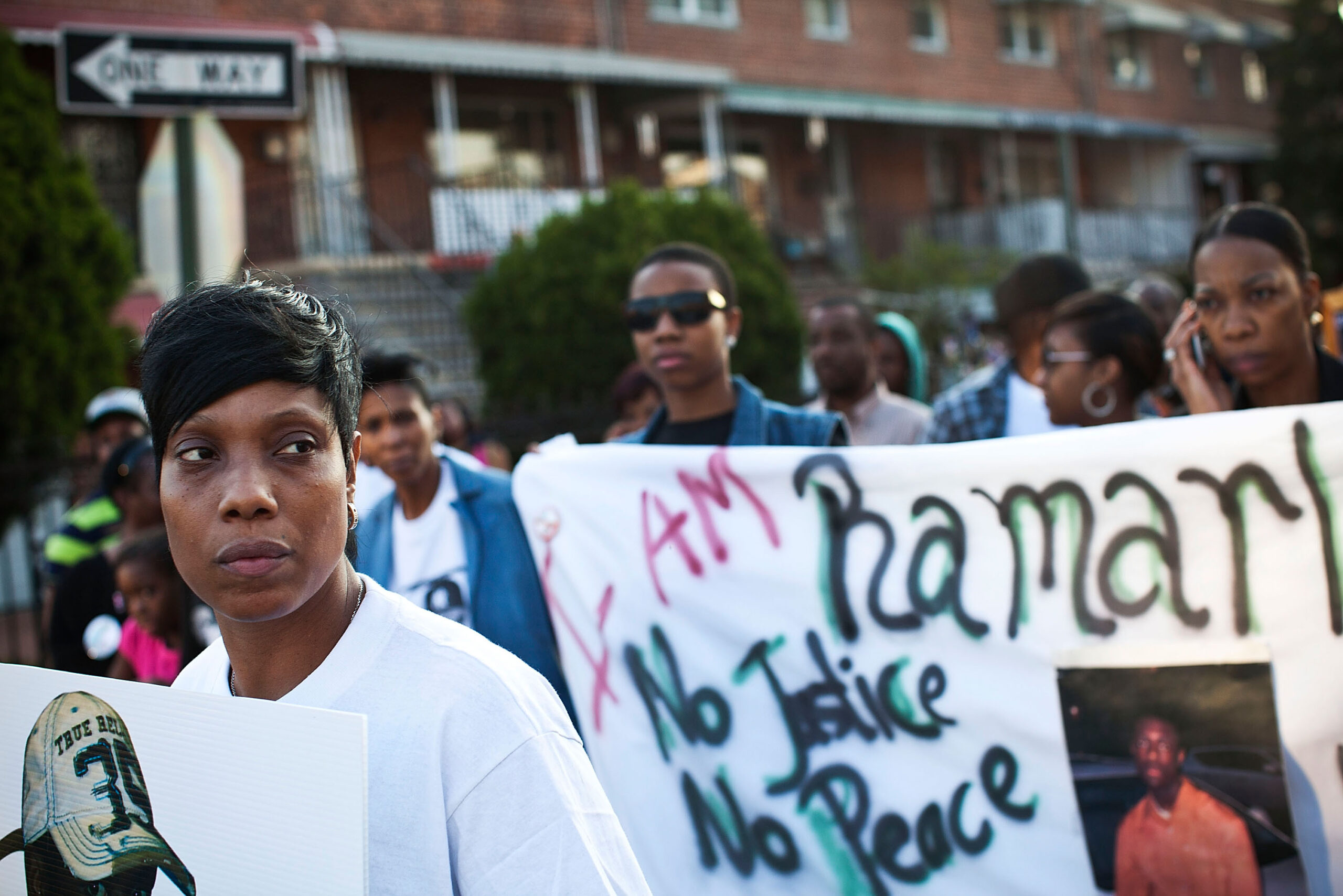Constance Malcolm stepped into the public eye three years ago after a white New York City police officer, Richard Haste, rushed into their bathroom and fatally shot her son, black, unarmed 18-year-old Ramarley Graham. A certified nursing assistant, Malcolm was not at the Bronx apartment at the time. But Graham’s grandmother and 6-year-old brother, Chinoor, were. Now, nearly three years to that February day–and after a second grand jury cleared Haste in 2013–New York City has settled with Graham’s family for $3.9 million. But Malcolm isn’t satisfied. She wants police accountability. She talked with Colorlines about her unexpected new life, faith, what it means to fight and of course, Chinoor.
It’s been three long years of fighting for justice for Ramarley. Now with the settlement, do you consider the fight to be over?
No, the fight will never be over. A settlement does not equal justice [and it] could never take away the pain that this city and this officer cost me. No, it’s not over. And we still have the Department of Justice investigating [Ramarley’s case].
What would justice look like?
Officer Richard Haste and other members of that unit getting fired and prosecuted to the fullest extent of the law.
Do you trust this current DOJ process?
I don’t know what to say to that question because the system already failed me. I know this is the DOJ but it’s still a part of the system so I don’t know how much trust I have in them. They’ve gone from "looking into the case," in 2013 to last September, "investigating the case." I hope for the best.
I think, some people might say that keeping up the fight is the ultimate display of faith in the system.
I would say, if you just sit and let police kill us and not be held accountable, it will keep happening. On video tape, from start to finish, a police officer killed [Eric Garner] for the whole world to see.
How did you feel watching the protests in New York City and around the country in reaction to other grand juries again failing to indict police officers for Eric Garner’s and Mike Brown’s deaths?
I felt good! This is something we didn’t want to happen. But I’ve been saying for three years if these officers are not held accountable, it’s going to happen again. When I see these young kids out there, I’m like, "Yes! Yes!"–because they want changes. I was on the Brooklyn Bridge with my 9-year-old son, Akai Gurley’s girlfriend and her two kids and I felt good. It reminded me of back when they crossed the bridge in "Selma." That’s just how it looked. If you put the pictures together, it looks similar. And we have voting rights and all that now. So one day, we’ll get [police accountability], too.
How is your little boy?
Chinoor is 9 now. He was 6 when it happened. He’s getting older. He understands more. Now when he sees the news and certain things, he says, "Mommy they’re not stopping." With Eric Garner, he watched the video. I let him watch it. He saw what happened to his brother; what could be more damaging than what he’s already seen? I try to explain stuff to him. I say my son is always going to be damaged. I don’t know what’s going to happen down the line. We don’t know what his mindset will be like when he’s 15. I hope he’ll be OK but, I don’t think so. You can’t be all right after seeing that.
How do you hope he sees you, all that you’re doing for Ramarley?
I want him to see that I’m a strong person. I want him to see that I’m fighting not just for Ramarley but for him too and to make sure this doesn’t happen to another family. If I lay down in bed all day and cry, it’s not going to help. We’re fighters. We’re not going to sit down and take whatever you give us. That’s what I teach my kids. You have to go out and get what you want.
Let’s go back four years. Ramarley is alive, a 17-year-old young man. Could you ever imagine your life would’ve taken this turn?
No, I wouldn’t imagine this. It’s so weird ’cause I never thought I would be in this position where I’m fighting for my son, where an officer which we trust [comes] in my home, not like it happened in the street–not that it would make any difference–but to come in my home and do this to my child. We always tell our kids, "Police are here to make you safe. Go to nearest officer you see." And for one of them to actually take his life. … It’s like… I can’t. I can’t. It’s like I’m still frozen, like, "Did this really happen?" The same person you tell your kid to trust is the same one to take his life.
